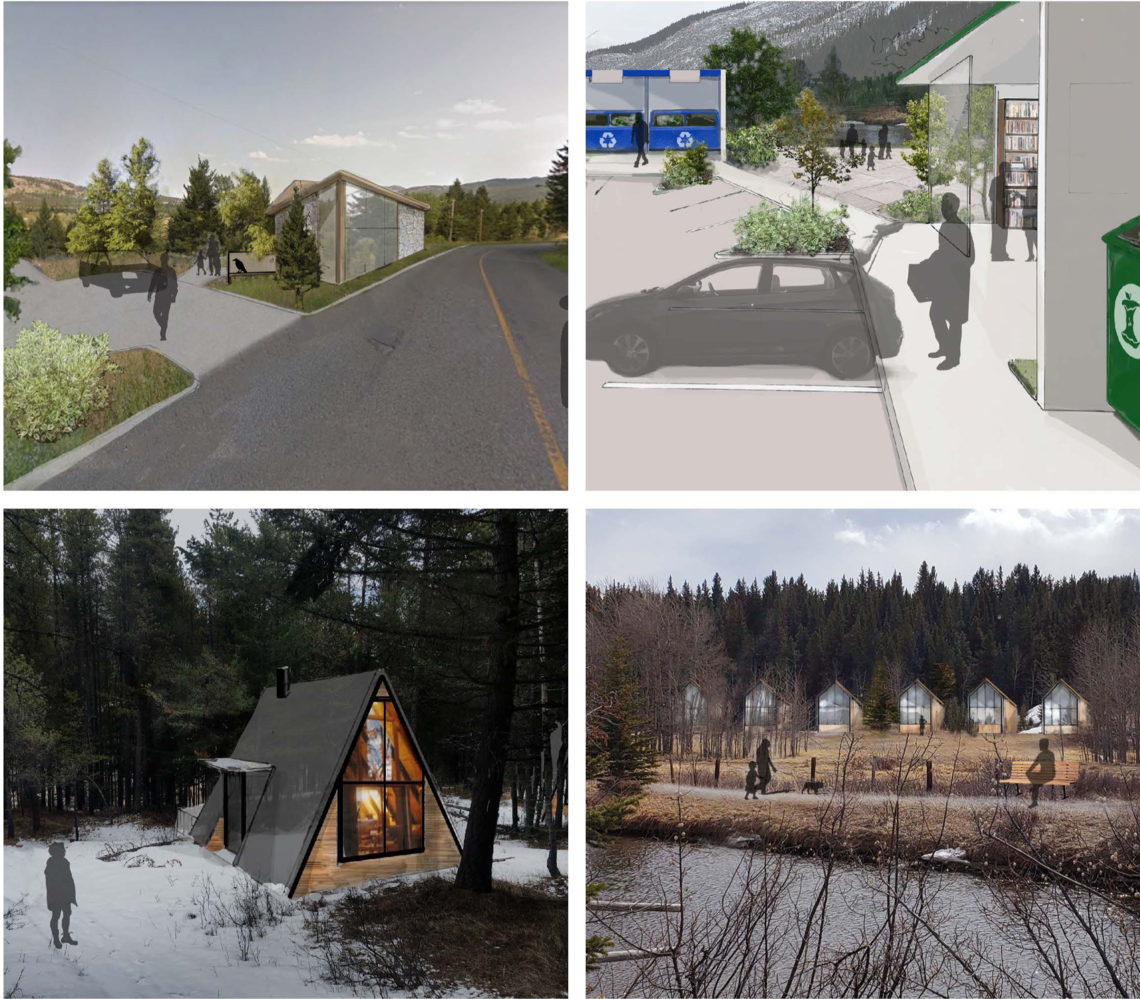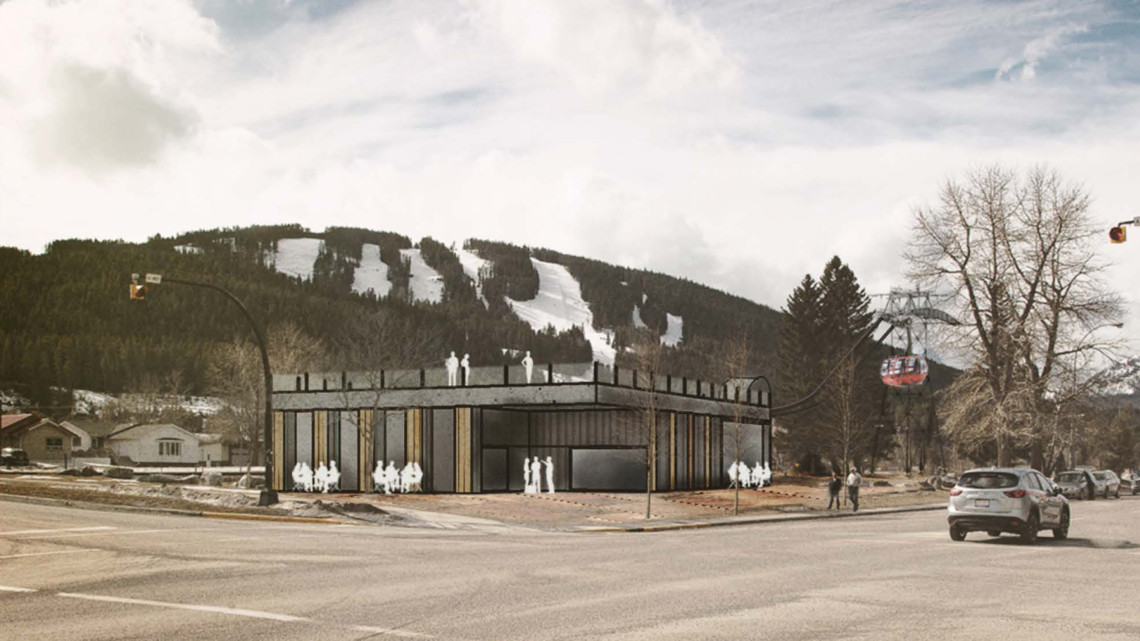
Aug. 16, 2021
Planning students get hands-on to reimagine Crowsnest Pass Municipality
Surrounded by spectacular scenery, Crowsnest Pass (aka The Pass) is located in the lowest elevation mountain pass in the Canadian Rockies. It’s within easy driving distance of world-class skiing and has extensive outdoor recreation amenities. The Pass also struggles with aging buildings and infrastructure, a tax base that’s almost entirely residential, and insufficient commercial investment.
It’s a real community with a demonstrated issue. And, it’s exactly what Master of Planning (MPlan) students tackle in the final term of the two-year degree program as part of the Advanced Professional Planning Studio course.
This past semester, students worked with the Municipality of Crowsnest Pass (CNP). What sustainable solutions could a group of 15 University of Calgary graduate students offer the roughly 5,600 residents of the Pass? And how would they do it during a global pandemic, with social distancing and gathering restrictions with some of the students working remotely from out of province?
Learning about the community
School of Architecture Planning and Landscape professor Francisco Alaniz Uribe and the Municipality designed a public engagement process and organized three site visits for students during the semester.
“Visiting the project site is essential to understand its challenges and opportunities, which in turn allows students to propose grounded designs and strategies,” he explains. Students learning remotely were paired with Calgary-based students who could share information and documentation about the site.
Students had to consider some significant unknowns that may affect the area’s future, like proposed Category 4 coal mining and the potential widening and redirection of Highway 3. As part of the public engagement process a steering committee, composed of members from the community, provided students with feedback at three different stages during the project, and an online community workshop and open house provided opportunities for broader public input.
The Pass doesn’t want to become a highly developed tourist destination and doesn’t have a surplus of funds to invest in big or merely aesthetic improvements.

Ivan Osorio-Avila, Kristen Mei, and Martina MacFarlane proposed a variety of interventions that included adding housing and amenities while leveraging green space and the current community trail system.
Ivan Avila and teammates Martina MacFarlane and Kristen Mei had to think about “with the pieces we have, what can we create that is sustainable, reusable and adaptable,” says Avila. They proposed temporary interventions that could be adapted and reused elsewhere. The team maximized access to the existing community trail by looping it to the community’s main streets, making it easier for people to use those spaces.
Elie Jahshan, Shaun Ali and Oliver Prcic focused their efforts on increasing tourism by proposing an elevated boardwalk system over the wetland between Coleman and Blairmore, and a gondola in Blairmore that could provide year-round access to the mountains.
Housing was the focus of another group. Darby Henshaw, Mitch Stykalo and Nathan Stelfox proposed additional housing in Bellevue, Coleman and on Crowsnest Pass Golf Course to attract tourists and allow for increased housing density. They leveraged existing green spaces and added amenities. They also designed a wayfinding and signage strategy that renamed the current community trail system “The Passage”, building on the community’s history and sense of place.
The students acted as facilitators of planning/design by focusing on the community’s wants and needs and identified the places where interventions would be most impactful. “It’s really important to take in what the community wants,” Henshaw notes. “You have to acknowledge and embrace what is [already] there, but also enhance it and reprioritize it to be more sustainable, combining what is practical, what is best and coming up with potential solutions.”

Palliser Gondola Station includes rooftop seating and parking for cars and bikes. The gondola goes to the top of the Pass Powder Keg and makes the backcountry more accessible. This project was proposed by Elie Jahshan, Shaun Ali and Oliver Prcic.
The community response
The students presented their proposals to the CNP at an online Open House with over 40 residents joining via Zoom to view the work and provide feedback. Community members were receptive to their ideas. Oliver Strickland, long-time resident of the CNP and Chair of the Economic Development Committee, sees great value in the students’ work, likening it to the same calibre as that of consultants they have worked with in the past. “[The students] have got the pulse of the community, they feel our pain, our struggles,” he said. “The visual [representation] that the students did was fantastic. It gave us a roadmap, [allowing us to see] what we could do. Their recommendations are very good.”
“Planning is not one size fits all,” said Henshaw. “We’re there to help [the community] be the best version of itself, using as much best practice as possible.”
The students also presented to the Municipal Planning Commission with great success. Blair Painter, the Municipality’s Mayor, thanked students for the top-notch product they presented. “[The] teams have done an amazing job and they have reinforced visions that my Council has been trying to put in place for some time” he said.






